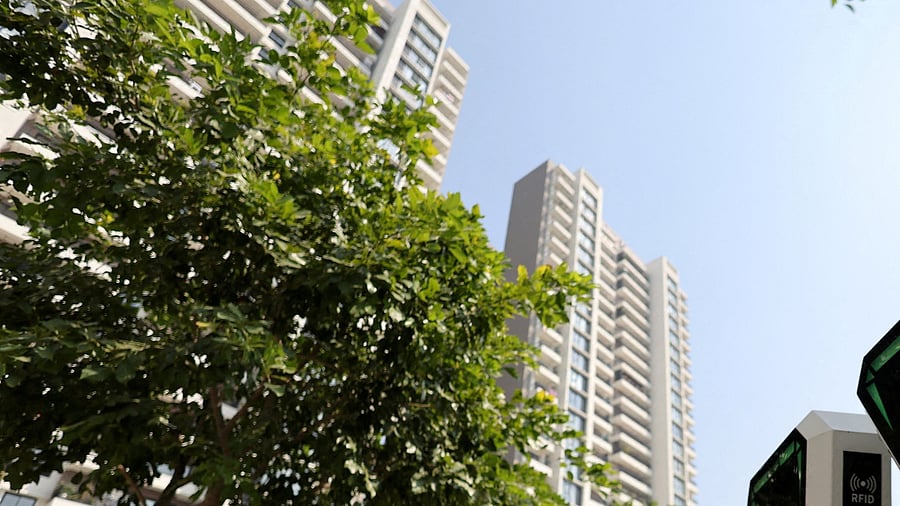
Bengalureans claim this renting model can triple profit margin. (Representative image)
Credit: Reuters photo
The hassle of finding and dealing with long-term tenants is the leading cause for some Bengaluru property owners to find an alternate source of income. An increasing number of owners have woken up to the benefits of short-term rental platforms.
In June this year, Jason Sharat, set up a portion of his home as a rental space on Airbnb, an online platform for homestays. “I live with my parents in a two-storey building. We occupy the ground and first floors. The second floor has been rented out since 2008 to long-term tenants,” shares the 24-year-old musician. Their home is located in HSR Layout. The family decided to move away from the traditional renting model in an attempt to make the most of the real estate market.
They were getting a monthly rent of Rs 25,000 for the 2BHK property. But other properties in the locality were charging much more. “So I started looking into other renting options. It’s been about six months since we set up the place on Airbnb and the monthly earnings from the property have gone up to Rs 1 lakh,” he says. The occupancy rate is high during the festive season and holidays. But even during the off season, the property makes about Rs 60,000. A majority of their clientele are corporate employees. “Post Covid-19, many people moved back to their hometowns. Now, because of the hybrid working model, they only return to Bengaluru when required. We also get a lot of international guests,” he shares.
People use multiple online platforms such as Makemytrip and Agoda to find guests for short stays. But Airbnb was a popular choice among homeowners Metrolife spoke to.
Software engineer Tanvi Bhakta also set up one of her parent’s properties on Airbnb eight months ago — a 2BHK flat, and a studio apartment. It is located near Mathikere. “I noticed that people are willing to pay Rs 5,000 to Rs 10,000 more for properties that are furnished,” she says, adding that she learned that the profit margins from platforms like Airbnb were higher. “It took approximately one month’s rent to furnish the property. This and other overhead charges can be easily recovered over time,” she shares. The properties currently have 72% occupancy.
“In addition to the profit, Airbnb also offers convenience and safety. The platform makes it easier to find
tenants and also helps with rent valuation, taking into consideration various market factors,” she adds.
On the outskirts
Gopal Krishna, 37, constructed a 2BHK villa at the foothills of Nandi Hills. He has been renting it out since 2023. “I wanted to diversify my investment portfolio. I had multiple options but went with the short-term rentals, as they are the most profitable,” says the corporate employee.
Breaking down the profit margin, he says, “Buying a property of Rs 1 crore in a good locality in Bengaluru will fetch a rent of approximately Rs 45,000. This is barely a 4-5 per cent yield. With short-term rentals this goes up to at least 12 per cent.”
Subletting culture
It’s been 10 days since Riyana Rasheed started subletting her apartment in Bharatiya City, Thanisandra. “I’d been living there for three years. Recently, I had to move out due to personal reasons, but I didn’t want to give up the place just yet. I spoke to my landlord and he was okay with the idea of putting up the property on Airbnb. We share the profits,” she says. Since its launch, the property has been booked on all days.
Akash Devaraju has been subletting a 1BHK apartment in Koramangala for eight years. “It’s a good way to make some passive income, as there is almost a 100 per cent profit return rate. I moved out earlier this year, but I’m still subletting the apartment,” he says. The apartment is booked until March 2025. Almost 70 per cent of his guests are women.